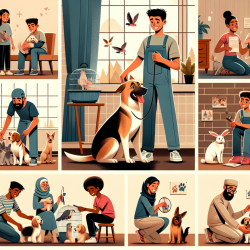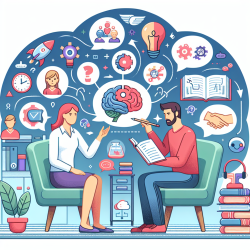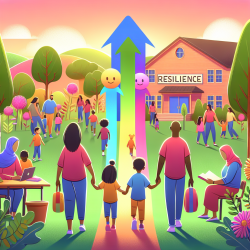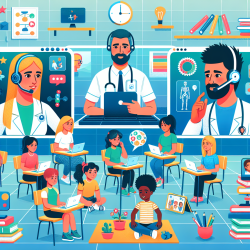The COVID-19 pandemic has brought about significant changes in family dynamics and individual behaviors. One area that has seen a notable shift is the role of pets in families, particularly concerning adolescents' responsibilities towards their companion animals. A recent study titled "Associations between Pet Care Responsibility, Companion Animal Interactions, and Family Relationships during COVID-19" sheds light on these dynamics. This blog explores how practitioners can leverage these findings to enhance their therapeutic practices and encourage further research in this domain.
The Impact of Pet Care Responsibility on Adolescents
The study highlights that adolescents who took on more responsibilities in caring for their pets reported improved family relationships and used pet interactions as a coping mechanism during stressful times. This insight is crucial for practitioners working with adolescents, especially those dealing with stress or family issues. By encouraging responsible pet ownership, therapists can help adolescents develop a sense of identity and responsibility that positively impacts their mental health and family dynamics.
Encouraging Responsible Pet Ownership
- Developing Identity: Adolescents who identify as pet owners often feel a stronger connection to their pets. Practitioners can encourage this identity development by discussing the benefits of pet care responsibilities with their clients.
- Coping Mechanism: Spending time with pets was a preferred coping strategy for stress among adolescents. Therapists can incorporate discussions about positive pet interactions into sessions to help adolescents manage stress effectively.
- Family Dynamics: The study found that increased pet care responsibilities were associated with improved family relationships. Practitioners can work with families to create shared pet care plans that foster communication and cooperation.
Implications for Therapy Practices
The findings from this study offer several implications for therapy practices involving adolescents and families:
Integrating Pet Therapy into Sessions
Therapists can integrate discussions about pets into therapy sessions as a way to build rapport and explore family dynamics. Understanding the role of pets in a client's life can provide valuable insights into their emotional well-being and coping strategies.
Promoting Family Involvement
Encouraging families to engage in shared pet care responsibilities can strengthen bonds and improve communication. Therapists can guide families in setting realistic expectations and responsibilities for each member, fostering a supportive environment for both the adolescents and the pets.
Further Research Opportunities
The study opens up several avenues for further research. Practitioners are encouraged to explore how different types of pets influence adolescent development and family relationships. Additionally, longitudinal studies could provide deeper insights into how pet care responsibilities evolve over time and impact long-term family dynamics.
Conclusion
The research on pet care responsibility during the COVID-19 pandemic offers valuable insights for practitioners working with adolescents and families. By integrating these findings into therapeutic practices, therapists can enhance their services and support the mental health and well-being of their clients. Encouraging responsible pet ownership not only benefits the individual but also strengthens family bonds.
To read the original research paper, please follow this link: Associations between Pet Care Responsibility, Companion Animal Interactions, and Family Relationships during COVID-19










